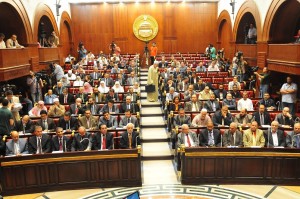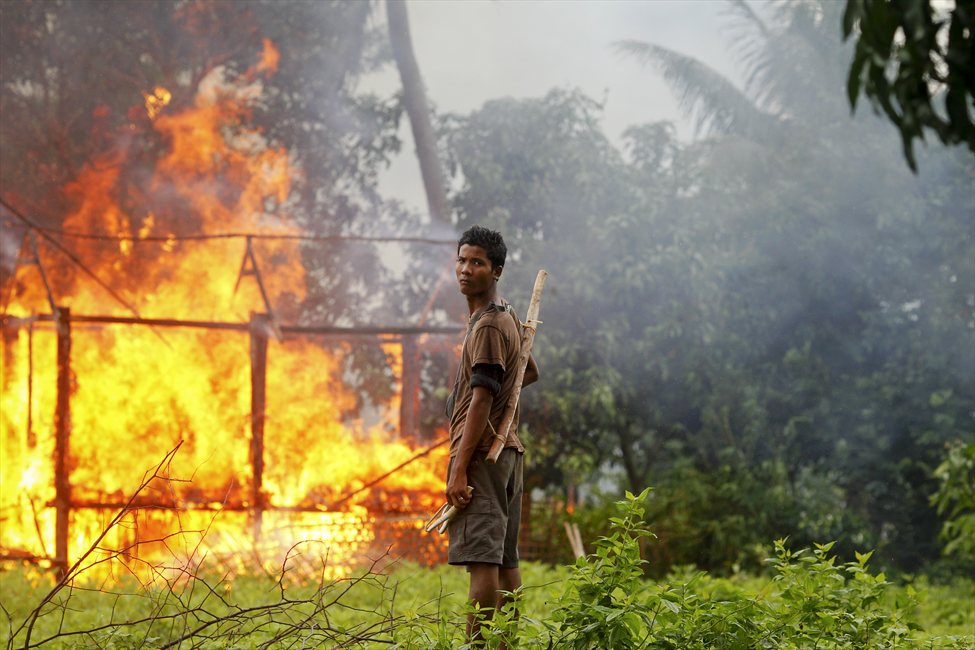
(DNE/ File Photo)
The Shura Council on Sunday passed the political participation bill after discussing amendments proposed by the Supreme Constitutional Court (SCC).
The court had referred the bill back to the upper house of parliament with suggested amendments after finding nine articles unconstitutional, alongside amendments to four unconstitutional articles within the House of Representatives elections bill.
After approving the bill, the Shura Council referred it once again to the SCC to ensure its amendments were taken into consideration.
Representatives of the Freedom and Justice party (FJP) disagreed with an amendment giving the Supreme Electoral Committee the right to call elections, instead arguing for the president alone to have the right.
Minister of State for Legal and Parliamentary Affairs Hatem Bagato supported the amendment, originally proposed by the SCC.
A compromise was reached granting the SEC the right to call elections and the president the right in the absence of a House of Representatives (as is currently the case).
The changes also included powers by both the president and the SEC head to postpone elections in cases of emergencies.
The article preventing military and security personnel from voting was amended based on recommendations by the armed forces. Although the SCC deemed the exclusion of military and police from voting unconstitutional, the armed forces’ proposition postponed allowing personnel to vote until July 2020.
Major General Mamdouh Shahin, the defence ministry’s assistant for legal and constitutional affairs, stressed during the council session that including personal data and information of officers and members of the armed forces in the voter database could jeopardise national security.
He stated that now is a sensitive time to allow police and military personnel to vote in elections.
“For the time being, the armed forces are tasked with securing the elections,” Shahin pointed out.
“We have witnessed the most successful elections under the supervision of the armed forces. We want to keep the military away from the political arena for now.”
Bagato approved the armed forces’ proposition on behalf of the government, stating it was compatible with the SCC’s amendments.
The amendments passed included changes to Article 16, which states that elections should be fully monitored by the judiciary, including voting by Egyptian expatriates abroad.
The Shura Council also approved an article banning electoral campaigning based on religious, sexist, or ethnic slogans or symbols or any slogans which might threaten national unity.
The council also cancelled articles in the bill requiring private-owned media to dedicate equal coverage to all candidates. The articles were considered unconstitutional because they violated freedoms of expression, the court said.
The SCC’s amendments were approved by the Shura Council’s committee on constitutional and legislative affairs last Tuesday. It was then referred to the entire council for discussion.
The amendments to the House of Representatives’ elections bill are scheduled to be reviewed by the legislative committee this week.
The two bills make up the legislation governing the upcoming elections for the lower house of parliament.
